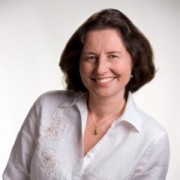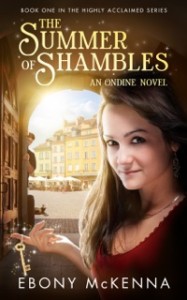Making Up Words
Although English steals the best adverbs and expressions from every other language on earth, sometimes the only right word is something that doesn’t yet exist. There’s no point using words if you can’t have fun playing with them first. Expressions too, such as ‘caramel yoghurt’, fill me with naughty glee. This expression describes a person who should be made of awesome, but who turns out to be a huge disappointment. Just as caramel yoghurt has all the right ingredients to be delicious, yet turns out horrible. I learned this the hard way, if you were wondering.
Creating words that are location-specific is all part of the dream of building a world. One of my favourites is ‘The Dentate’ (the place with teeth). This is the house of parliament in Brugel, which is in Eastern Europe. I invented Brugel too. Mostly because I didn’t want to insult anyone from Ukraine or Romania or Moldova when I wrote my novel The Summer of Shambles. But also because Brugel is an anagram of burgle, and that’s got to be good for a giggle.
People all over the planet invent words for fun and profit. Spelunking is one such example. It’s a mashup of Latin and possibly a bit of Dutch as well, and a mandatorily American change of spelling. Spelunking. It’s a real word, for people who really enjoy having a bit of fun in the outdoors. It’s the activity of exploring deep caves, using ropes. A little like abseiling, except that you begin outdoors and quickly fall into the indoors. Spelunking has been around so long it even has its own patron saint. (That would be St Benedict, who is also the patron saint against witchcraft. Sock that away for your next trivia night.)
Even more pleasing to my heart, there is heated disagreement over the word. Serious spelunkers prefer to call themselves ‘cavers’. They have the same patron saint, as I assume dropping into a slippery, deep dark hole in the ground would go hand-in-hand with a fair amount of prayer.
When it comes to inventing words, I’m a total novice. So many good ones are already out there, it’s hard coming up with something original. And by original I mean ‘one that Shakespeare hasn’t already invented’. Back in the day, so the story goes, Shakespeare penned more words than we’ve had hot meals. This makes perfect sense as there weren’t as many words in the English language at the time. Plus, Thomas Blount’s dictionary wouldn’t come along until forty years after Shakespeare died.
Much like this anecdote, up to fifty per cent of Shakespeare’s words were completely invented. But he had to be careful about it; he could have been beheaded if he’d written blue, so he found other ways of quilling dirty jokes.
HAMLET: Lady, shall I lie in your lap?
– Lying down at OPHELIA’s feet
OPHELIA: No, my lord.
HAMLET: I mean, my head upon your lap?
OPHELIA: Ay, my lord.
HAMLET: Do you think I meant country matters?
I can remember reading this in year twelve and making a sound very similar to a snarfle and being very, very embarrassed. One of my favourite resources for interesting words, whether old or new, is the online etymology dictionary (etymonline.org) It’s one of those places where I can lose hours of time do some solid research.
For example, type in ‘Boots’, and see that they were originally for riding horses, in the 14th century. (As in the riders wore them, not the horses.) But what’s this related word ‘boondocks’? It’s from ‘bundok’, the Tagalog word for mountain, in the Philippines. Therefore ‘boondockers’ were boots designed for mountainous terrain for American WWII servicemen.
Now that’s time well spent, and juicy food for a word-gobbling noggin. I typed in ‘snarfle’, just to see. But there’s nothing there …yet.
Therefore I encourage everyone to make freely with all things snarflish. The more users, the more chance it will get in a dictionary. It used to take ten years of active use to get in the OED’s big book of words, but if tweet is a noun (also used as a verb), can the laughing snarfle be far behind?
—
Category: Being a Writer, Contemporary Women Writers, On Writing, Women Writing Fiction
Comments (15)
Trackback URL | Comments RSS Feed
Sites That Link to this Post
- Featuring Women Writers on WWWB 2013 - Women Writers, Women Books | December 30, 2013






Love this article! 🙂 Good to know I’m not the only one to make up my own words. (I use ‘flumenhop’ as a swear word in my writing sometimes, since I hate using actual swear words. XD )
I did notice though, that your link to the etymology dictionary is incorrect. It should be .com, not .org. 🙂 http://etymonline.com/
oooh Dorothy, thank you very much for spotting that.
And thanks for posting the proper link.
It’s a wonderful resource, that’s for sure.
reading this reminds me of the words I used to love in
T.S. Elliot’s poems in high school- ‘puddle-luscious” was one ,
I believe. thank you for your thoughts, Ebony!.
Eileen, puddle-luscuious sounds fabulous. As always, when the right word doesn’t exist, you have to go ahead and invent it.
Thank you for expressing what so many writers are secretly thinking! I always tell people that I’m allowed to make up words because I am a writer. It’s like a free pass for all those years spent reading Shakespeare as an undergraduate.
Absolutely Kate! We’ve paid our dues, now it’s time to play. Come here little words, I’m going to give you a makeover!
Some words just seem so intuitive. Quite rightly, they get rapidly taken up by others. Snarfle! Love it!
Another amusing way to find words that should have a meaning is to play online Boggle. On a difficult 5×5 board it is such fun to start playing with the letters. I typed in Snirtle once: the word isn’t real, yet, but I’m sure it is a type of Snarfle! 🙂
So much unused potential in our language! Thanks for the thoughts.
Snirtle! Oh Sally, I love it. Is it when a turtle sneezes? No, that’s too easy. It can be one of those laughing-shorting-crying jags where you can’t stop, and you keep laughing and snorting and crying because it’s so funny.
I love when authors make up new words! One of my favorite examples is the musical, Wicked. The dialogue and songs were peppered with new words like “swankified” and “de-greenify.” They sounded exotic and helped establish that the action was unfolding in a foreign place, but were still easy to understand. I think it can really add to the texture of a work when, if appropriate, the author makes up words.
How gorgeous. I am already in love with ‘swankified’.
Hooray Patricia, Patricia, be free with the snarfle.
It would be the icing on the snarflecake.
My favorite example of making up words is the musical, Wicked. They used dozens of created words that were totally understandable, but also totally new. For example, “swankified” and “degreenify.” This really helped reinforce that the action was taking place in a foreign land, yet the meanings were still crystal clear. Another excellent reason to make up words, and I loved it!
I love the idea of making up words! What is language but a way to express ourselves and convey what we feel? Shakespeare made up many words as tools of the trade. I for one am happy to be free with all things snarflish.
Hi Patricia,
I saw a wonderful clip for the Mary Poppins/Walt Disney movie with Emma Thompson, and her character TL Travers was chastising the Sherman Brothers for making up words in their songs. “That’s not a real word, get rid of it!”
Cut to a shot of them hiding the music for “supercalifragilisticexpialidocious”.
If we didn’t make up words, the English language would stagnate, and we’d have no fun.